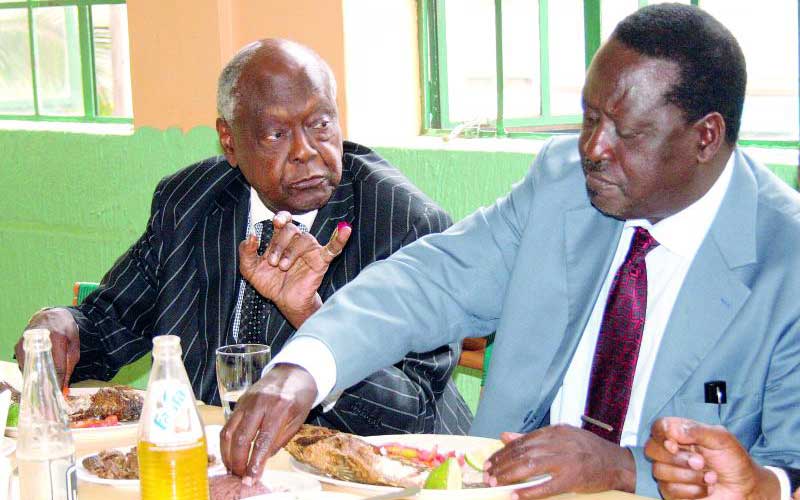×
The Standard e-Paper
Home To Bold Columnists

Raila Odinga and Charles Njonjo having lunch at a restaurant in Nairobi. The years 1983 to 1984 represented a period that Njonjo would perhaps never want to remember, as friends deserted him as if he had leprosy. [File, Standard]
The Attorney General’s office was also instrumental to the collapse of the East African Community in 1975-1977.